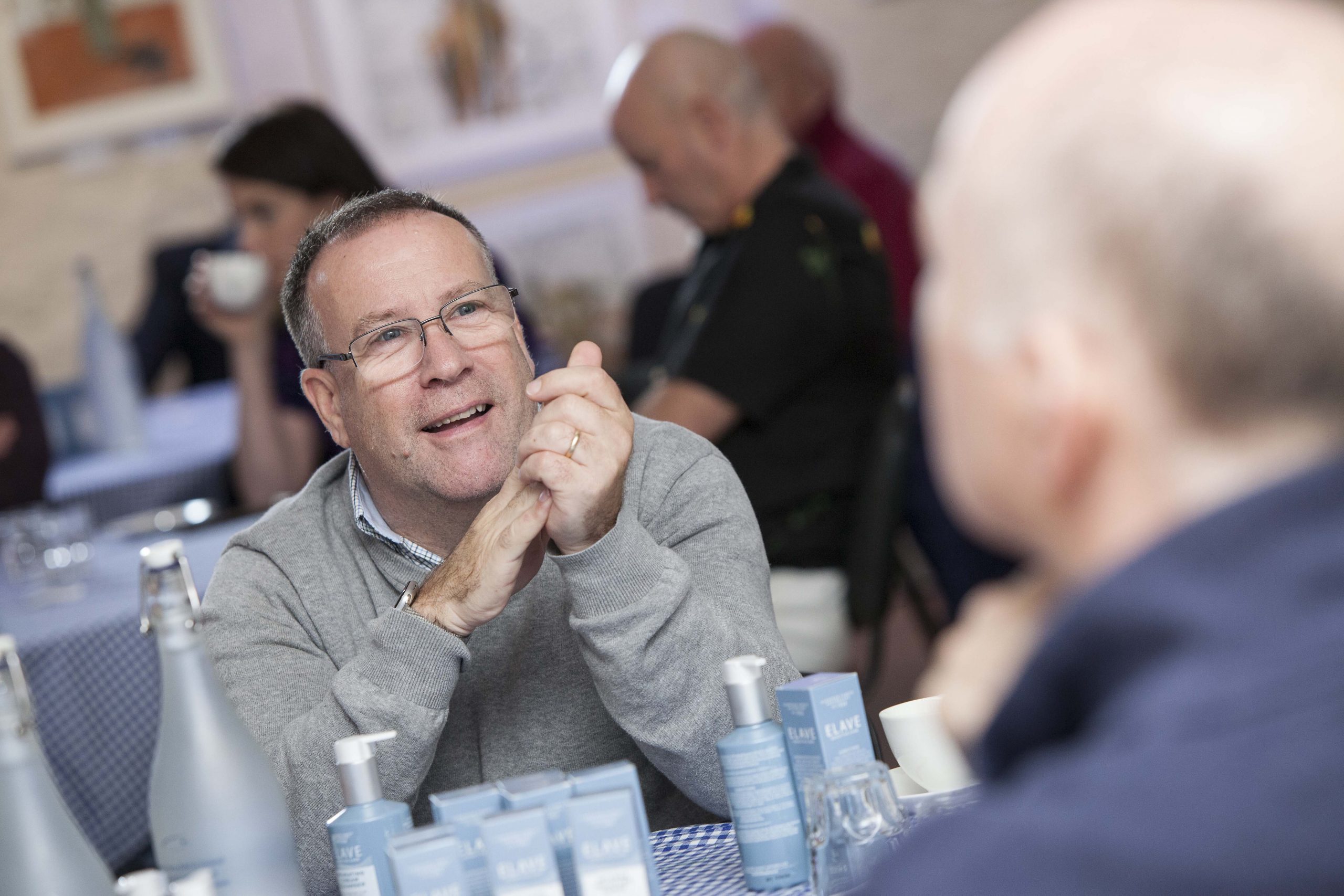Frank Madden is not a household name in Irish business. But he should be.
Part of the reason is that it is difficult to explain exactly what his company, Crest Solutions, now CXV Global, actually does. But mostly, it is because Madden never seeks to actively court publicity.
Instead, he has spent the past 25 years building, fine tuning, and expanding his business. The 54-year-old has provided mentoring to dozens of aspiring entrepreneurs and has invested in everything from flat-pack housing to solar to energy storage.
In recent weeks, however, he pulled off the deal of a lifetime. It occurred without little fuss or fanfare. Instead, he announced the specifics of the transaction to a room full of entrepreneurs at the annual BIC Entrepreneur Experience earlier this month.
“I can’t give you the number, but it is a nine-figure number,” Madden told the room at Ballymaloe Grainstore in Shanagarry, Co Cork. “It was an unbelievable result for us, but the reality is that we are with private equity now and we have big plans for the next five years.”
Nine-figure deals are rare among Irish private enterprises. But this is exactly what the 54-year-old Madden has achieved with CXV, a business headquartered in Cork that delivers technology-leading solutions to help create efficiencies for the pharmaceutical industry.
Under the deal, Crest is linking up with two international peers and taking in PE backing from Water Street Healthcare Partners, a Chicago-based fund that manages $6 billion of equity capital.
The plan is to expand the combined businesses further over the next five years through organic growth and targeted acquisitions. After that, it will likely float or be sold to a trade buyer.
Madden is an unusual entrepreneur. He only set up the business after losing his job when an Apple factory in Cork shut down more than a quarter of a century ago. He could have held his stock options, and though he did not know it at the time, have made a financial killing.
Instead, he sold his shares, and along with his redundancy package, launched his own business.
He outlined part of his story at the Entrepreneur Experience. Then, a few hours later, he sat down with Tom for a wide-ranging interview.
Here are six key takeaways from Frank Madden’s journey:
The first idea can often be a stupid idea
As Tom outlined, Madden’s initial idea was to sell the efficiency software he created for Apple to other manufacturers. However, nobody other than Apple used its computers to make things.
“A lot of times when you are setting up in business the first idea might be the stupidest idea, but it doesn’t matter,” Madden told the Entrepreneur Experience. “The way I see it is you set out on the road on a very foggy night and as long as you keep between the ditches the fog will lift.”
So, he knuckled down, figured out what potential customers actually wanted, and gave himself a crash course in business, working with Eileen Moloney, who had just started working with Cork BIC.
And it paid off.
Customer funded business
Beyond his own seed funding, Frank Madden did not raise any external funding until the Water Street deal. Instead, his company ploughed its profits back into the company and used funding from its customers to grow.
“A customer-funded business means that the only place I get money from is my customers. This means the only way I can live and feed my employees and family is by figuring out what brings value to those companies,” according to Madden.
Tom asked Madden whether he should have taken money in earlier. His response was honest and informative: “I don’t know I could have done it any other way. Years went by, and I didn’t notice because I liked it. Any business owner will tell you how lonely and difficult it is, but it is still a great job. It is only bad if you’re out of money and going to pull others down with you. I never got to that stage, but I got near it.”
This mirrored something the entrepreneur Barry Lunn told Tom last week also: “I am big into business fundamentals. I believe we have to create value first and then ask investors to add money,” he said.
Structures matter
Up until 2015, Frank Madden ran his original business Crest Solutions like an entrepreneur. This was crucial to getting things going, but he also knew he needed to put in place a management structure around him to help take the business to the next level. As he put it: “An entrepreneur is usually the worst person to make money. They are good at ideas and passionate, but they are not always thinking about money.”
So, he brought on board an experienced accountant and project manager Mark Purcell as COO. The results spoke for themselves. “Mark understands operations and how to make money and since he joined, we have become a phenomenal business,” Madden told Tom.
Collaboration
Crest was really good at what it did. However, so were other companies in other counties in the same space. Instead of fighting each other, they collaborated and worked together.
Crest and Pennsylvanian firm Xyntek decided to formalise their partnership in what they called a “reverse franchise”. The third company in Belgium, VistaLink, came on board also. The new “reverse franchise” would become CXV Global.
Combined, they were able to bid for bigger projects, and attract a bigger value when it came to securing investment. “The idea was we still ran our own businesses but how we operate, and how it looks and feels to the customer will be the same,” Madden said.
Taking the right investment
When PwC was appointed as advisor to CXV Global in 2021, the options included raising debt finance, selling up to a trade buyer, or bringing in private equity.
“A trade sale means game over for an owner founder. Debt funding was good, but it would not really pull all the different companies together. So, we decided to try and find the right private equity which would allow us to build the business by buying into our strategy,” Madden said.
“A really good PE allows companies to leverage their assets – not just their money but also their contracts.”
Water Street ticked all the boxes.
Measured growth
The new enlarged company plans to make acquisitions. But any acquisitions will be strategic – the company is looking for an enhanced footprint as opposed to just revenue growth.
“We want the ability to go to our customers and be beside them if they have plants anywhere in the world whether that is the US, Belgium, France, Germany, the UK, Ireland – even Asia,” Madden said.
*****

Elsewhere, today we are publishing a great read by Gary Murphy, the Professor of Politics in DCU. On one sense, it is a review of Shane Ross’s book on Mary Lou McDonald. But in reality, it is an essay about the party she leads and the issues it faces. It is well worth a read.
Evelyn Kelly founded Orphan Drug Consulting five years ago. She’s grown the company quickly, helping launch more than 100 products globally through four international offices. But the field of orphan drugs is deep with challenges of equitable access and unhappy outcomes. She spoke to Rosanna.
Should we expect something like the heady days of the late 90s when Iona Technologies and Baltimore Technologies were both flying high on New York’s NASDAQ? Or will a small number of US tech giants outmuscle homegrown innovation and entrepreneurship? John Collins had a major report on the future of Irish start-ups.
Higher rates and a slowing economy will hold back the housing market, on both the buy and sell side. The real number to watch will therefore not be house prices, but quantities, according to Stephen Kinsella in his column last week following the ECB’s most recent announcement.


